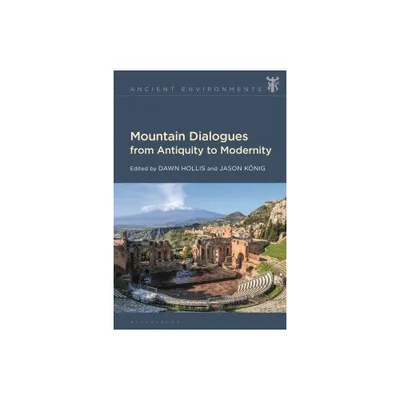Home
Pictorial Archaeology: Modernity and the Muse of Antiquity
Loading Inventory...
Barnes and Noble
Pictorial Archaeology: Modernity and the Muse of Antiquity
Current price: $180.00


Barnes and Noble
Pictorial Archaeology: Modernity and the Muse of Antiquity
Current price: $180.00
Loading Inventory...
Size: Hardcover
*Product Information may vary - to confirm product availability, pricing, and additional information please contact Barnes and Noble
This book explores the expressly pictorial type of visual archaeology, the transcribing of three-dimensional materiality into two-dimensional depictions, and its influential history within the discipline.
The picturing of ancient sites and artifacts to convey information links visual reporting with the workings of the imagination and indicates that the study of antiquity has always had a hybrid identity: part artistic and part scientific. In examining expressly pictorial forms of visual story-telling about the past, this book looks beyond certain supposed "creative turns" and focuses instead on creative continuities, answering key questions about the power of picturing and its ability to not only inform documentary practices but actively structure those practices. How are prints, drawings, paintings and photographs able to collapse the three-dimensional world of the ancient past onto a flat page but also convey a sense of material reality? In contemporary practice, how do pictorial ways of seeing enable the interpretation of material remains but also shape the recognition of digital traces on a computer screen? Published illustrations, both historical and contemporary, are primary sources of evidence for answering such questions and identifying common patterns of pictorial information.
This book provides a framework for scholars researching the visual culture of archaeology as well as the history of archaeology. It is also recommended for professionals in the fields of heritage studies, conservation and community archaeology.
The picturing of ancient sites and artifacts to convey information links visual reporting with the workings of the imagination and indicates that the study of antiquity has always had a hybrid identity: part artistic and part scientific. In examining expressly pictorial forms of visual story-telling about the past, this book looks beyond certain supposed "creative turns" and focuses instead on creative continuities, answering key questions about the power of picturing and its ability to not only inform documentary practices but actively structure those practices. How are prints, drawings, paintings and photographs able to collapse the three-dimensional world of the ancient past onto a flat page but also convey a sense of material reality? In contemporary practice, how do pictorial ways of seeing enable the interpretation of material remains but also shape the recognition of digital traces on a computer screen? Published illustrations, both historical and contemporary, are primary sources of evidence for answering such questions and identifying common patterns of pictorial information.
This book provides a framework for scholars researching the visual culture of archaeology as well as the history of archaeology. It is also recommended for professionals in the fields of heritage studies, conservation and community archaeology.


















